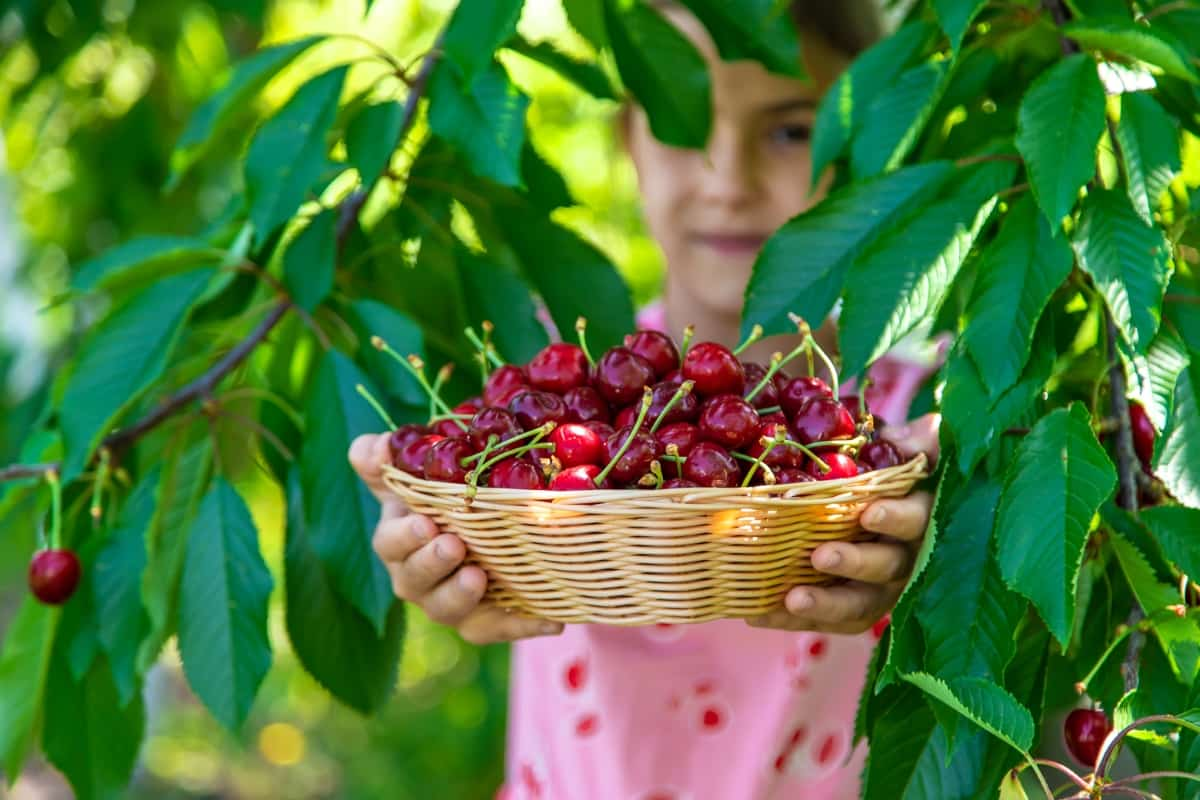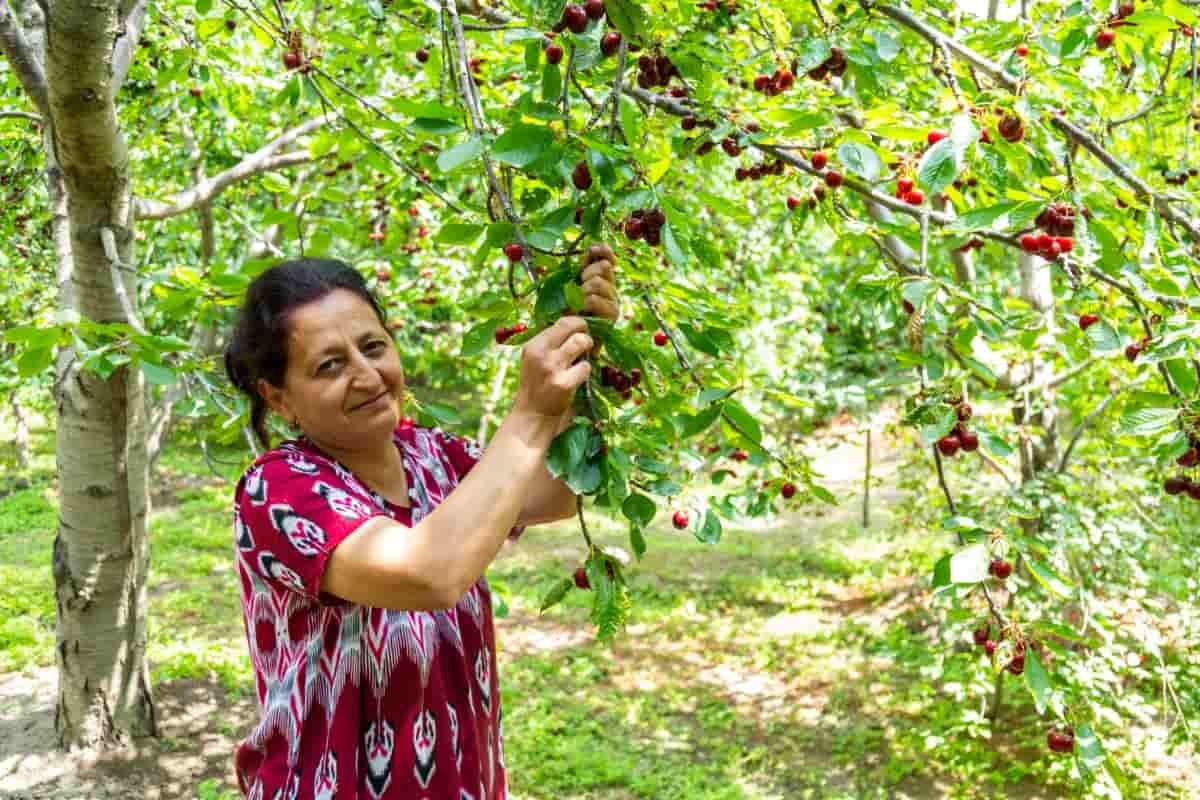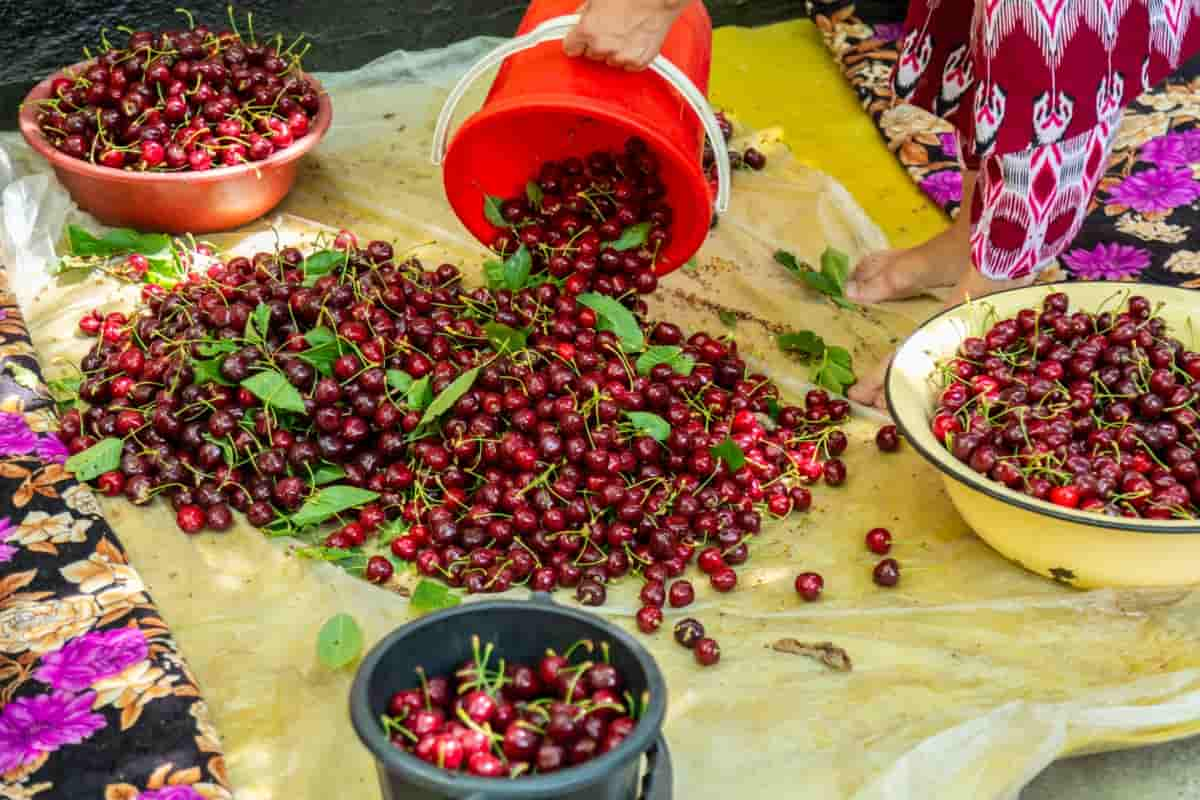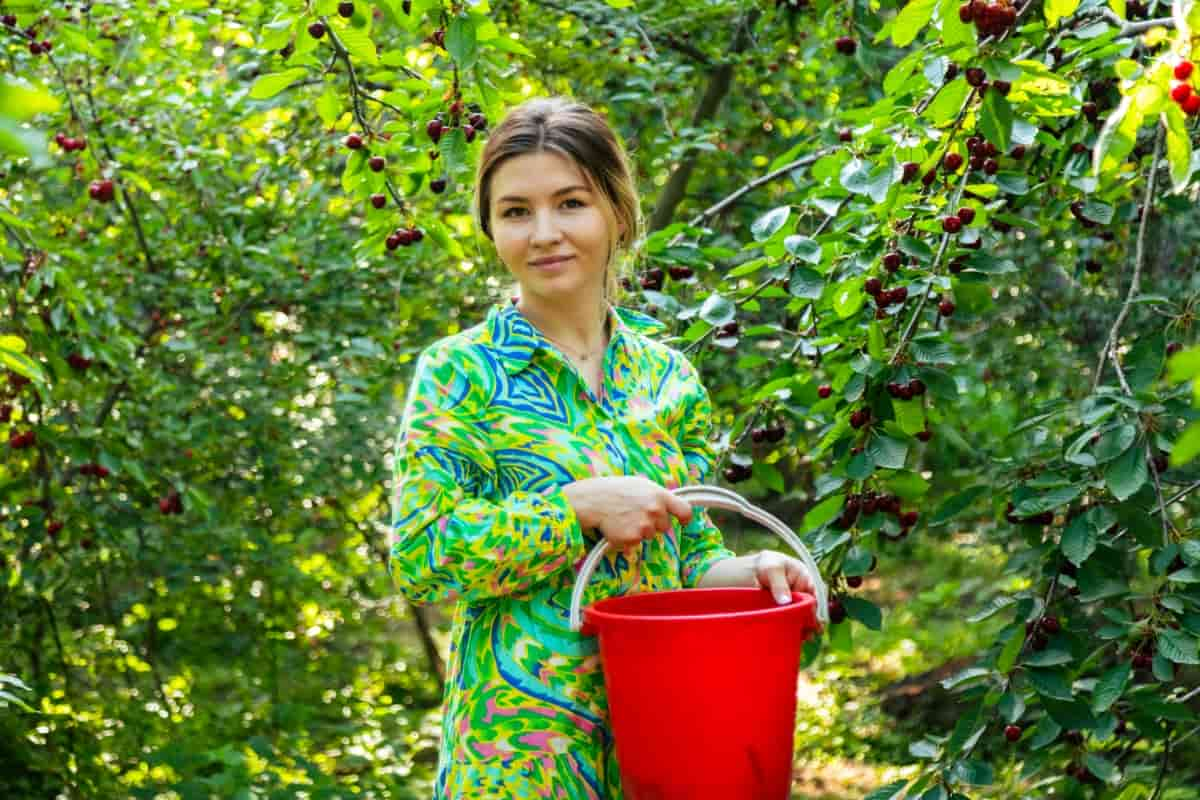In modern agriculture, drip irrigation has emerged as a pivotal technology, revolutionizing cultivation practices, especially in cherry plantations. Investing in drip irrigation for cherry plantations involves various components contributing to the overall installation cost. Factors such as the type of soil, topography, and water source influence the expenses.

On average, the initial investment for drip irrigation systems can range from Rs. 1,50,000 to Rs. 1,90,000 per acre, covering essential components like filters, pipes, and control systems. Consider the long-term benefits, including water savings and increased yield, when assessing the return on investment.
Drip Irrigation Cost for Cherry Plantation
Evaluate the Cost of Drip Lines and Emitters for Cherry Fields
Drip lines, which deliver water directly to the root zone, are priced based on material quality, length, and durability. On average, the cost of high-quality drip lines ranges from Rs. 15,000 to Rs. 20,000 per acre. Emitters, responsible for regulating water flow, are an integral part of the system and may cost between Rs. 5,000 to Rs. 10,000 per acre.
While these costs constitute a substantial upfront investment, the long-term benefits, including reduced water consumption and increased crop productivity, make drip irrigation a financially sound choice for cherry farmers. Government subsidies may further alleviate these expenses, fostering the widespread adoption of sustainable irrigation practices in cherry cultivation.
Analyze the Expense of Filters and Pressure Regulators
Filters, designed to collect impurities and debris from the water, are essential for preventing clogging in emitters and maintaining the system’s integrity. The cost of filters can vary based on their capacity and technology, ranging from Rs. 5,000 to Rs. 10,000 per acre. Pressure regulators play a vital role in stabilizing water pressure within the system, preventing damage to pipes, and ensuring uniform water distribution.
The expense for pressure regulators typically falls within the range of Rs. 10,000 to Rs. 12,000 per acre. Selecting high-quality filters and pressure regulators is crucial for minimizing maintenance costs and optimizing water delivery to the cherry crops, ultimately enhancing overall farm productivity.
Estimate the Cost of Automation and Control Systems
The cost of automation in drip irrigation for cherry plantations includes controllers, sensors, and monitoring devices. The expenses for these systems can range from Rs. 25,000 to Rs. 30,000 per acre, depending on the complexity and sophistication of the technology employed. Automated controllers allow for precise scheduling of irrigation cycles, optimizing water usage, and reducing operational labor. Sensors provide real-time data on soil moisture and climatic conditions, enabling farmers to make informed decisions for irrigation management.
Assess the Price of Pumps and Pumping Stations
The cost of pumps varies based on factors such as capacity, type, and efficiency. Typically, the price of pumps for drip irrigation in cherry farming ranges from Rs. 30,000 to Rs. 35,000 per acre. Additional expenses may include the installation of pumping stations, which can vary based on the system’s complexity and the need for specialized infrastructure. Investing in reliable and energy-efficient pumps is essential for maintaining the effectiveness of the drip irrigation system and ensuring consistent water supply to the cherry crops.
In case you missed it: Drip Irrigation Cost for Rubber Plantation: Exploring Installation Costs Along with Subsidy for 1-acre Farm

Explore the Cost of Fertilizer and Nutrient Injection Systems
Incorporating fertilizer and nutrient injection systems into drip irrigation enhances the precision and effectiveness of cherry farming by delivering essential nutrients directly to the plant roots. The cost of these systems depends on factors such as the type of fertilizers used, the size of the cherry plantation, and the complexity of the injection technology.
On average, the cost of fertilizer and nutrient injection systems for drip irrigation in cherry farming ranges from Rs. 20,000 to Rs. 25,000 per acre. These systems allow farmers to tailor nutrient delivery to the specific needs of the cherry crops, promoting optimal growth and fruit development.
Calculate the Labor and Installation Costs
The installation process involves site preparation, laying pipes, installing emitters, setting up filters and pressure regulators, and configuring automation systems. Labor costs can vary based on factors such as the complexity of the terrain and the size of the plantation.
On average, the labor and installation costs for drip irrigation in cherry plantations range from Rs. 18,000 to Rs. 25,000 per acre. Skilled labor is vital to ensure the proper setup of the system, optimizing its efficiency and functionality. Additionally, costs may be influenced by the need for specialized equipment and machinery during installation.
Factor the Maintenance and Repair Expenses
Regular maintenance is essential to prevent clogging in filters and emitters, maintain optimal water pressure, and address any wear and tear in the system. Farmers should allocate funds for periodic inspections, cleaning, and adjustments to keep the system in top condition. Maintenance and repair costs typically range from Rs. 8,000 to Rs. 15,000 per acre annually.
Additionally, unforeseen repair expenses may arise, necessitating the replacement of damaged components or addressing system malfunctions. Farmers should set aside a contingency budget for such instances, with repair costs varying based on the severity and nature of the issue.
Energy Costs Associated with Drip Irrigation in Cherry Cultivation
Energy costs constitute a notable portion of the operational expenses in drip irrigation for cherry cultivation. The system’s reliance on pumps, controllers, and automation technologies necessitates a continuous power supply. The energy consumption is influenced by factors such as pump capacity, automation complexity, and the duration and frequency of irrigation cycles. On average, energy costs for drip irrigation in cherry farming can range from Rs. 10,000 to Rs. 12,000 per acre annually.
In case you missed it: Drip Irrigation Cost for Tea Plantation: Exploring Installation Costs Along with Subsidy Per Acre

Utilizing energy-efficient pumps and incorporating solar or alternative energy sources can contribute to cost savings over time. While the energy expenses are a consideration, the precision and water efficiency gained through drip irrigation often outweigh these costs by enhancing overall productivity and reducing water wastage, making it a sustainable and economically viable choice for cherry farmers.
Cost Analysis of Drip Irrigation Per Acre for Cherry Plantation
| Item | Cost Range (INR) |
| Drip Lines & Emitters | 20,000 to 30,000 |
| Filters and Pressure Regulators | 15,000 to 22,000 |
| Automation and Control Systems | 20,000 to 25,000 |
| Pumps and Pumping Stations | 30,000 to 35,000 |
| Fertilizer and Nutrient Injection Systems | 20,000 to 25,000 |
| Labor and Installation Costs | 18,000 to 25,000 |
| Maintenance and Repair Expenses | 8,000 to 15,000 |
| Energy Costs | 10,000 to 12,000 |
Government Subsidy for Drip Irrigation in Cherry Plantations
PMKSY (Pradhan Mantri Krishi Sinchayee Yojana) was launched on 1st July 2015 with the objective of achieving convergence of investments in irrigation. PMKSY (Per Drop More Crop) – Focuses on enhancing water use efficiency at the farms through drip and Sprinkler irrigation systems.
The pattern of financial assistance payable to the farmers under the micro irrigation scheme will be 55% for small and marginal farmers, whereas it is 45% for other farmers. Both the central government and state government will meet at a ratio of 60:40 for all states except the North Eastern and Himalayan states. For these two states, the ratio of sharing is 90:10. For the Union Territories, the funding pattern is 100% granted by the Central Government.
Compare the Overall Operational Costs of Drip Irrigation vs. Traditional Methods in Cherry Farming
Drip irrigation offers advantages in water conservation, increased yield, and resource efficiency, but it involves upfront investments in technology and infrastructure. Traditional methods, such as flood or furrow irrigation, may have lower initial costs but can be less efficient in water usage and result in higher long-term expenses.
In case you missed it: Drip Irrigation Cost Per Acre for Plum Plantation: Exploring Installation Costs Along with Subsidy

In drip irrigation, despite higher upfront costs, precise water delivery, reduced labor requirements, and potential for increased yield contribute to a more sustainable and economically sound choice. Traditional methods often incur higher labor costs, as they may require more manual labor for irrigation and field maintenance. Moreover, water wastage is prevalent in traditional systems.
Conclusion
In conclusion, the exploration of drip irrigation costs for cherry plantations underscores the initial investment’s significance and the potential for sustainable water management. While installation expenses may be substantial, the long-term benefits in increased yield and resource efficiency are considerable. The careful consideration of these factors positions drip irrigation as a valuable and economically viable solution for cherry farmers committed to enhancing productivity and environmental stewardship.
- Feed Your Flock for Less: Top 10 Tips to Save on Chicken Feed
- Ultimate Guide to Ossabaw Island Hog: Breeding, Raising, Diet, and Care
- Hatching Answers: The Top 10 Reasons Your Chickens Aren’t Laying Eggs
- Eggs and Economics: Breaking Down the Cost of Raising Backyard Chickens
- Defend Your Greens: Proven Methods to Keep Iguanas Out of Your Garden
- Ultimate Guide to Cinnamon Queen Chicken: A Comprehensive Guide for Beginners
- Ultimate Guide to California Tan Chicken: Breeding, Raising, Diet, Egg-Production and Care
- Ultimate Guide to Marsh Daisy Chicken: Breeding, Raising, Diet, and Care
- 10 Types of Chicken Farming Businesses You Can Start for Profits